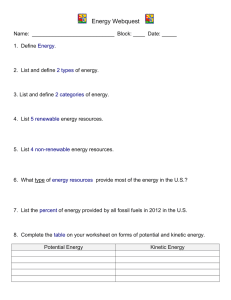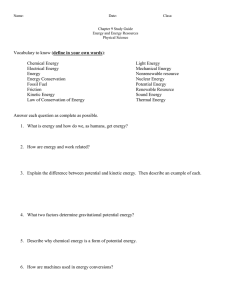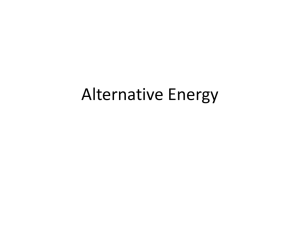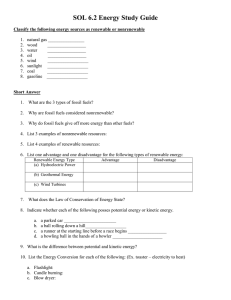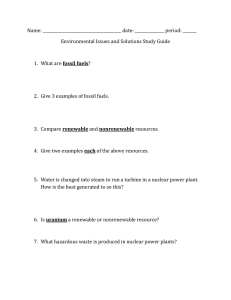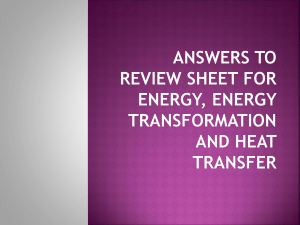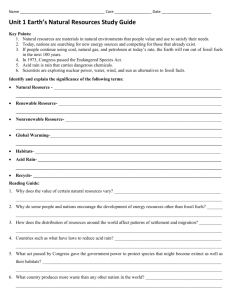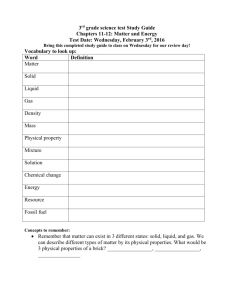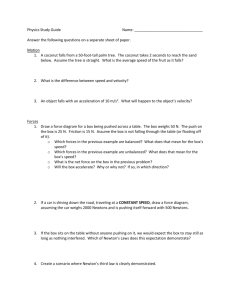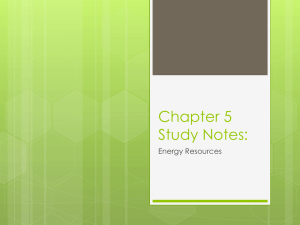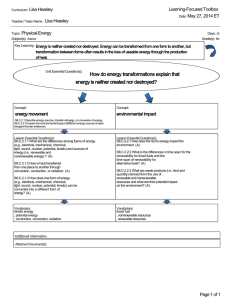CH. 3: Heat Energy SCIENCE STUDY GUIDE TESTING DATES
advertisement
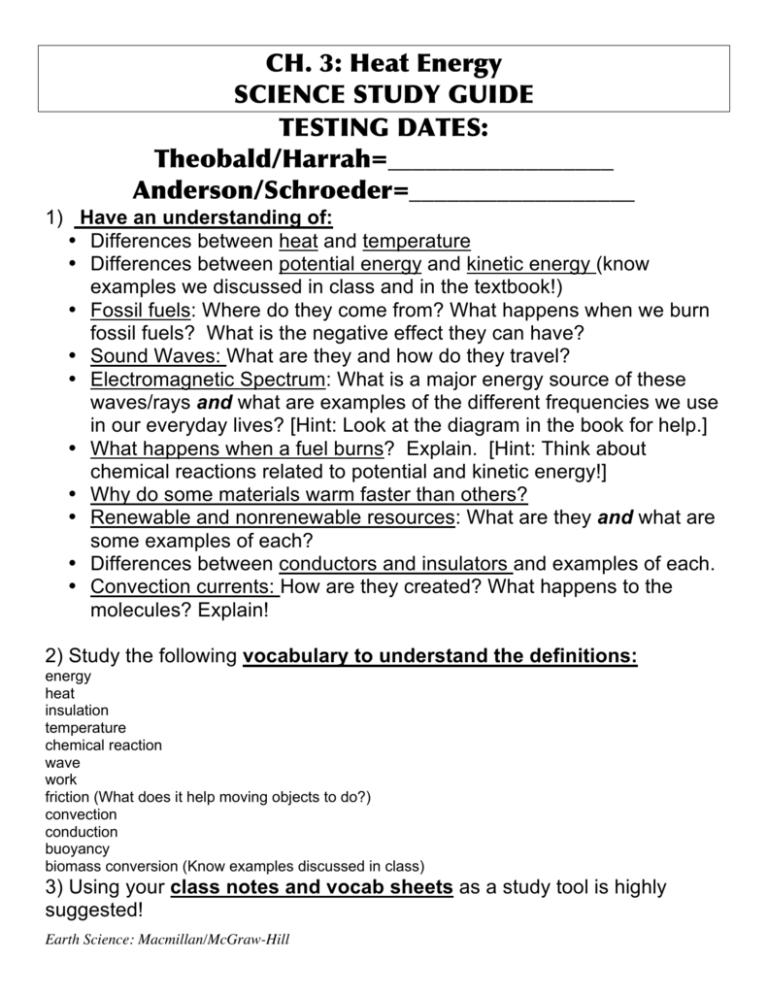
CH. 3: Heat Energy SCIENCE STUDY GUIDE TESTING DATES: Theobald/Harrah=__________________ Anderson/Schroeder=__________________ 1) Have an understanding of: • Differences between heat and temperature • Differences between potential energy and kinetic energy (know examples we discussed in class and in the textbook!) • Fossil fuels: Where do they come from? What happens when we burn fossil fuels? What is the negative effect they can have? • Sound Waves: What are they and how do they travel? • Electromagnetic Spectrum: What is a major energy source of these waves/rays and what are examples of the different frequencies we use in our everyday lives? [Hint: Look at the diagram in the book for help.] • What happens when a fuel burns? Explain. [Hint: Think about chemical reactions related to potential and kinetic energy!] • Why do some materials warm faster than others? • Renewable and nonrenewable resources: What are they and what are some examples of each? • Differences between conductors and insulators and examples of each. • Convection currents: How are they created? What happens to the molecules? Explain! 2) Study the following vocabulary to understand the definitions: energy heat insulation temperature chemical reaction wave work friction (What does it help moving objects to do?) convection conduction buoyancy biomass conversion (Know examples discussed in class) 3) Using your class notes and vocab sheets as a study tool is highly suggested! Earth Science: Macmillan/McGraw-Hill
